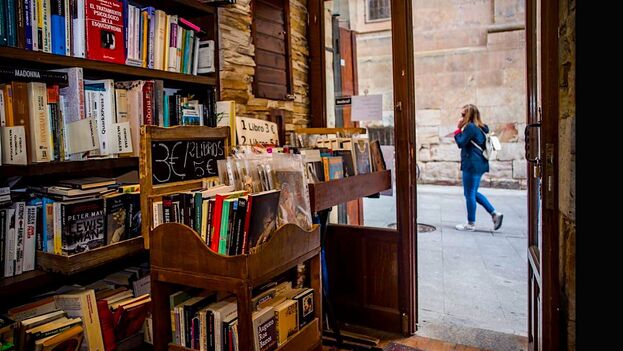
14ymedio, Xavier Carbonell, Salamanca, 31 December 2023 – In a freezing bookshop in Burgos; with an antiques dealer in Salamanca; talking to a bookseller in Seville; awaiting the post from a miserly bookseller from La Rioja; rooting through a hundred stalls at the Madrid fair; unpacking packages that arrive from Cuba: to narrate my year is to narrate my books. In each case I know how much they cost, where I bought them, and what they brought to me that was new to my life and to my library.
A sporting spirit brings a reader to make lists – not only of the books they’ve read but also the ones they’ve acquired, the ones they’ve lost and the ones most wanted. My list – which contains all of the above – is divided into months, and it resembles a list of diary entries of where I found each book, as well as any notes or reflections that seemed worth jotting down at the time. It’s not a bad habit to have if you’re going to want some content for future use in novels or in columns.
In my diary – a lovely little Moleskine – I also describe meals, or the weather, people I’ve met and places visited. Observations from a bewildered point of view, because, for someone who has left their native country, although they might have a bed and a roof over their head, beyond that, everything appears exotic. The reader’s diary is not short of heroes and villains, unexpected luxuries and moments of extreme hardship. (In interviews, Borges said that he had known extreme poverty. “When, Borges?”, Soler Serrano asked him in 1980. “The poverty of not getting to the end of the month”, the blind man replied.)
People who read, they get up every day with an impulse that asks them “to save Shakespeare, the Mona Lisa, Havana cigars, penicillin, the iPhone and the Kalashnikov”
People who read, they get up every day with the sense of responsibility described by María Stepánova: it’s an impulse that asks them “to save Shakespeare, the Mona Lisa, Havana cigars, penicillin, the iPhone and the Kalashnikov”


